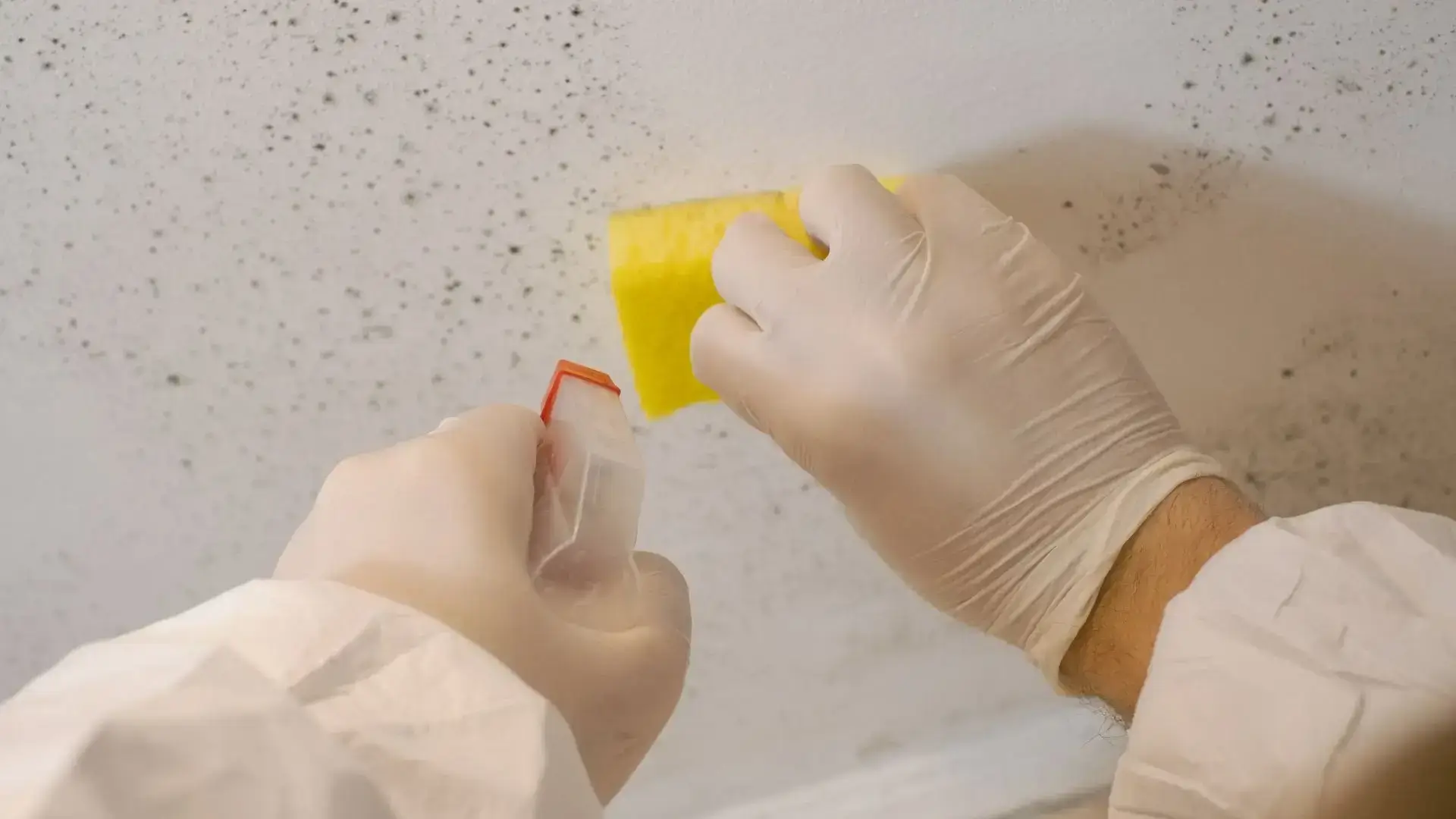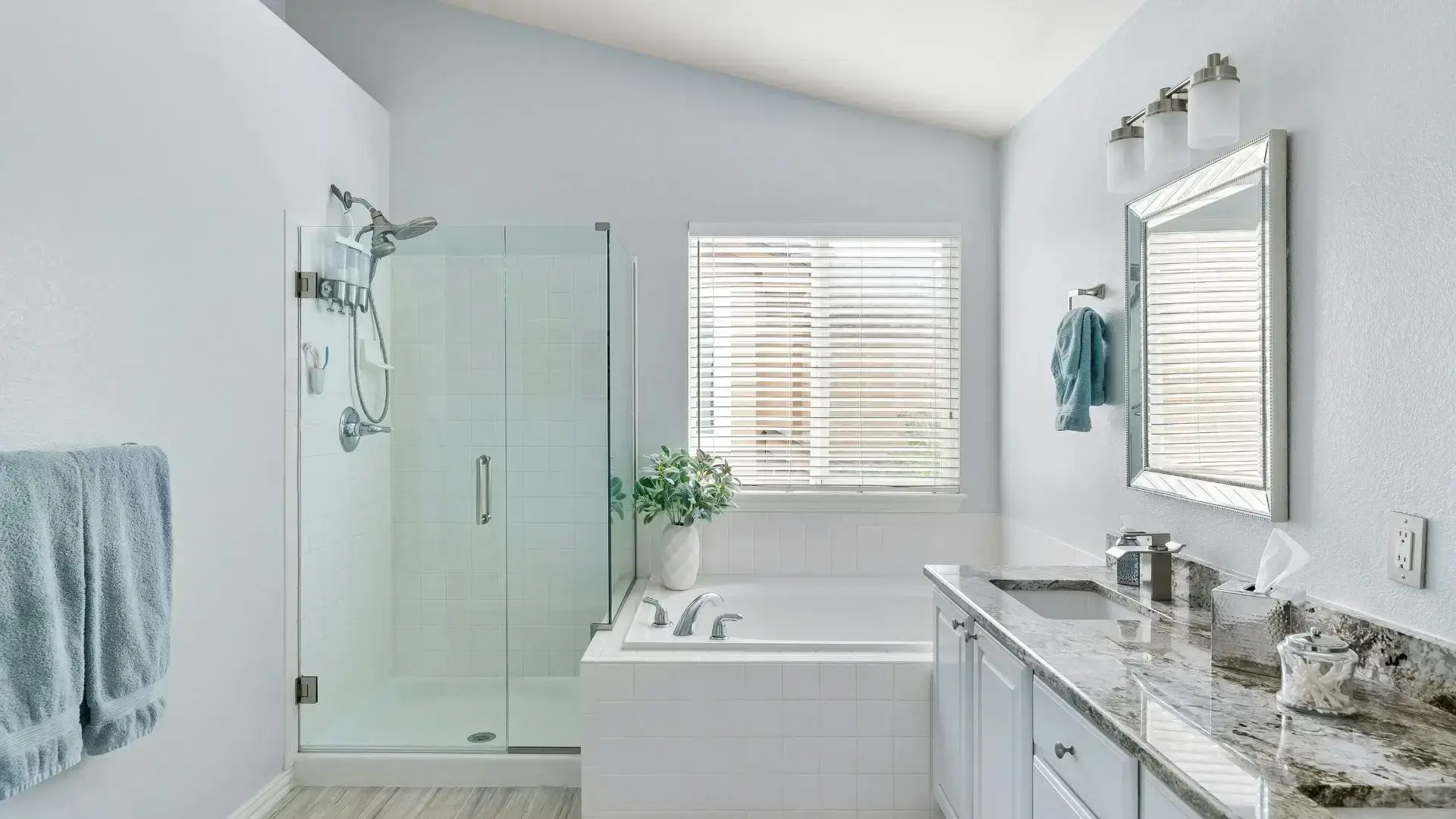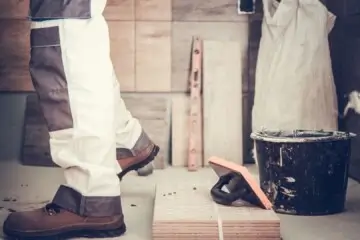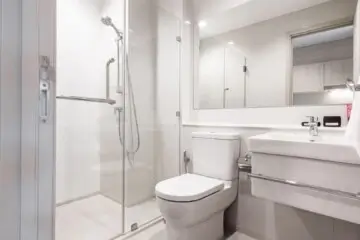To prevent mold and mildew in the bathroom, ensure proper ventilation by using vent fans or opening windows. Promptly repair leaks to prevent water accumulation. Address mold with suitable removal methods and incorporate mold inhibitors into your cleaning routine. Regularly check pipes and seal grout to prevent moisture buildup. By reducing humidity levels and wiping down wet surfaces, you can discourage mold growth. For more effective strategies and detailed tips on maintaining a mold-free bathroom, explore further ways to keep your bathroom clean and fresh.
Contact CAN Plumbing and Drainage for all your Bathroom Needs
For all your bathroom needs, reach out to CAN Plumbing and Drainage in Mississauga. Adequate ventilation is crucial in preventing mold and mildew in the bathroom. Excess humidity can promote their growth, making proper ventilation essential. Installing a vent fan helps reduce moisture levels, hindering mold development. It’s also important to promptly fix any leaks to prevent water accumulation, which can create a breeding ground for mold. If mold does appear, address it promptly using proper removal techniques to maintain a clean and healthy bathroom environment.

CAN Plumbing and Drainage Services Related to Bathrooms
When it comes to bathroom plumbing, CAN Plumbing and Drainage Services in Mississauga specialize in addressing all your needs, from fixing leaky faucets to clearing clogged drains. If you’re planning bathroom renovations, Our local plumbing company in Mississauga can assist with installing new fixtures and ensuring proper drainage systems are in place. Their expert team is ready to handle any plumbing issues that may arise in your bathroom, offering efficient and reliable services to maintain your bathroom in top condition.
Bathroom Plumbing
To ensure the proper functioning of bathroom plumbing systems, it is essential to conduct regular maintenance checks and promptly address any issues that may arise. To prevent mold in the bathroom, ensure that the grout in showers is well-sealed to prevent water seepage. Proper ventilation is crucial; consider installing an exhaust fan to reduce humidity levels and create a less mold-friendly environment. Using mold inhibitors in your cleaning routine can also help prevent bathroom mold and mildew growth. Regularly inspecting pipes for leaks, drips, or clogs can help catch plumbing problems early, preventing water damage and mold. By proactively addressing plumbing issues, you can maintain a mold-free bathroom environment.

Bathroom Renovations
During bathroom renovations, it is common to update plumbing and drainage systems to improve functionality and efficiency. To address mold issues, it is crucial to prevent mold growth by ensuring proper ventilation and promptly fixing any leaks. To get rid of mold, thoroughly clean affected areas with a mixture of water and baking soda. Keep an eye out for cracked bathroom grout, as it can harbor mold and mildew. Consider resealing or replacing the grout to prevent further mold growth. Another important step is to reduce humidity levels in the bathroom by using exhaust fans or opening windows during and after showers. These measures can help create a mold-resistant bathroom environment during renovations.
Reduce Moisture
To prevent mold and mildew in your bathroom, controlling the levels of moisture is crucial. Excess moisture provides an ideal environment for mold to grow. To reduce moisture, promptly fix any leaks as they can continuously supply water for mold growth. Additionally, maintain humidity levels by using exhaust fans or opening windows during and after showers. Wipe down wet surfaces and address any ventilation issues to prevent mold growth. If mold is already present, clean it promptly using suitable products. By taking these steps to reduce moisture, you can effectively prevent mold and mildew from recurring in your bathroom.
Use Mold-Resistant Products
When selecting materials for your bathroom, it’s wise to choose mold-resistant products to effectively combat mold and mildew growth. These specially designed products contain additives that inhibit mold growth, making them ideal for damp environments like bathrooms. By using mold-resistant materials for surfaces such as walls, tiles, and grout, you create an inhospitable environment for mold to thrive. While regular cleaning is still necessary, these products provide an extra layer of protection against black mold and mildew. Investing in mold-resistant materials can significantly reduce the need for constant scrubbing, helping to keep your bathroom cleaner and healthier in the long run.

Monitor Humidity
To maintain a mold-free environment in your bathroom, it is important to regularly monitor humidity levels. High humidity can create the perfect breeding ground for mold and mildew. To prevent moisture buildup and keep mold away, consider using a dehumidifier in your bathroom. Monitoring humidity levels in your home is essential, as excessive moisture can lead to mold growth not only in the bathroom but also in other areas. Ensure your bathroom is a mold-killing environment by keeping humidity levels between 30% and 50%. Installing a fan with the recommended capacity for your bathroom size can help regulate humidity levels effectively. By staying proactive in monitoring and controlling humidity, you can create a bathroom environment that is inhospitable to mold and mildew.
Ventilation
Proper ventilation is crucial for preventing mold and mildew buildup in the bathroom. To ensure adequate airflow, open doors and windows to promote air circulation and reduce moisture and humidity levels. When selecting a ventilation fan, consider the bathroom’s square footage to determine the necessary Cubic Feet per Minute (CFM) rating. Running the fan during and after showers can help remove excess moisture. Additionally, keeping the bathroom door open when possible allows for better airflow. To further combat mold and mildew, regularly wipe down damp surfaces like the hamper. Effective ventilation plays a vital role in maintaining a dry environment that discourages mold growth, ultimately contributing to a healthier bathroom.
Regular Cleaning
Regular cleaning is crucial to prevent mold and mildew growth in the bathroom. To keep mold away, it’s important to clean the bathroom regularly to remove any buildup that could foster mold and mildew. Use a mixture of white vinegar and water to wipe down surfaces like shower walls and curtains where moisture tends to linger. Pay special attention to areas around the shower and tub where water accumulates. Scrub grout lines to prevent mold spores from taking hold. Additionally, make sure to dry the shower walls and curtains after each use to reduce moisture levels. By incorporating regular cleaning practices into your bathroom routine, you can effectively combat mold and mildew growth.

Frequently Asked Questions About Molds in your Bathroom Near Me
Can Mold and Mildew in the Bathroom Cause Health Problems for My Family?
Mold and mildew in the bathroom can indeed lead to health issues for our family. Inhaling mold spores can exacerbate allergies, asthma, and respiratory problems. It is crucial to promptly address any mold or mildew growth to protect our well-being.
Are There Any Natural Remedies or DIY Solutions to Prevent Mold and Mildew Growth in the Bathroom?
There are several natural remedies and DIY solutions that can help prevent mold and mildew growth in the bathroom. Regular ventilation, using a dehumidifier, and cleaning with vinegar or tea tree oil have been found to be effective methods.
How Often Should I Replace the Caulking in My Bathroom to Prevent Mold and Mildew?
Caulking in the bathroom should be replaced every 2-3 years to prevent mold and mildew. Well-maintained caulking seals gaps, keeping water out and stopping mold growth. Regular checks help spot signs of wear and tear.
Can Mold and Mildew Spread to Other Parts of My Home if Left Untreated in the Bathroom?
Yes, if mold and mildew are left untreated in the bathroom, they can easily spread to other parts of your home. These fungi thrive in damp conditions and can spread through the air or by attaching to surfaces, potentially causing damage and health issues.
Are There Any Specific Cleaning Products or Techniques That Are Most Effective in Preventing Mold and Mildew in the Bathroom?
To prevent mold and mildew in the bathroom, we suggest using a combination of regular cleaning with products proven to combat these issues. Proper ventilation, minimizing moisture, and addressing any leaks promptly are also crucial steps.
Please rate our website
Let us improve this post!
Tell us how we can improve this post?


